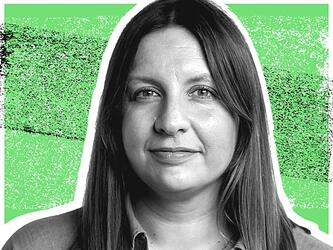Measuring minorities: Is expensive sample preventing inclusive research?
It is within the reach of everyone in the market research sector to hone our practices in order to give a voice to people at the very margins of society.
From adjusting sample quotas and data cuts in reports to ensure that people from all sections of the population are represented and ‘heard’ in supposedly nationally representative fieldwork, to adjusting survey and question formats to be accessible and representative to all people, there are many techniques whose combined effect is to enable genuinely inclusive market research.
One of the fundamental ways, however, in which our sector needs to evolve if we are to truly realise our potential to do good by giving a platform to minorities – is to radically reconsider the way in which fieldwork is priced.
Currently, to commission surveys with minority audiences, such as LGBTQ+ people and people from black and minority ethnic backgrounds, panels tend to charge a premium for each survey (CPI, or ‘cost per interview’). The lower the incidence of the sample, the higher the CPI.
To bring this problematic phenomenon to life, I have collated aggregated CPIs following a recent sample brief sent to eight leading UK panels. The average CPI to research gay/bisexual men was £12 and £13 to research lesbian/bisexual women. In comparison, the CPI for sending a survey to a classic and all-too-generically named audience of ‘mums’ would be around £1.50.
These prices mean that deploying a survey to a robust LGB sample of 500 queer men and 500 queer women would currently cost around £13,000 (including survey production). This ‘entry cost’ means that researching LGBTQ+ people is prohibitively expensive for many clients. This is despite the fact that there are many urgent aspects to LGBTQ+ life today going unresearched, such as increasing levels of discrimination and violence against LGBTQ+ people.
Additionally, when a cost request for surveying a transgender audience was deployed, most of the panels we contacted responded with a ‘no bid’, as they had no confidence in being able to deliver.
I am calling today on the leaders of panel businesses in our sector to do the following:
- Actively recruit: Undertake determined and front-footed strategic recruitment amongst minority groups in order to boost their representation on online panels. Consider using ‘specialist’ media and events to run targeted recruitment drives to boost panel counts for groups such as different ethnic groups and disability groups
- Proactively screen: Run thorough screening of existing panellists in order to make sure that the exact existing representation of minority groups is known (so that projects are not unnecessarily declined as ‘no bid’)
- Reimagine rates: Take an honest look at your rate card and pricing framework towards minority audiences. Place people interests over profit and appreciate the bigger picture ethical dimension at stake.
By removing practical barriers to researching minorities, such as cost and feasibility, the many amazing minds in our industry (such as the inspiring researchers we have been showcasing at our MRSpride events) who are passionate about giving a voice to minority groups will be allowed to be amplified.
Nourishing inclusive research by celebrating it will be a strategic priority for MRSpride. Our sector has great potential in raising the interests of oppressed parts of society. It is very much within our gift to harness our privilege and smarts to create a better world.
I am sending this article to the leaders of all the UK’s leading consumer panels in the hope they will give this pressing subject the serious consideration it requires. My great hope is to inspire a cross-sector response that transcends commercial appetite and competitive conventions in order to push towards a more inclusive sector – and society.
Michael Brown is chair of MRSpride and partner, insight and cross-culture at UM
The next MRSpride event takes place tonight ( 24th October).

We hope you enjoyed this article.
Research Live is published by MRS.
The Market Research Society (MRS) exists to promote and protect the research sector, showcasing how research delivers impact for businesses and government.
Members of MRS enjoy many benefits including tailoured policy guidance, discounts on training and conferences, and access to member-only content.
For example, there's an archive of winning case studies from over a decade of MRS Awards.
Find out more about the benefits of joining MRS here.





[crop:592x444+0+0;h:250;q:75;id:2913753].jpg)








0 Comments